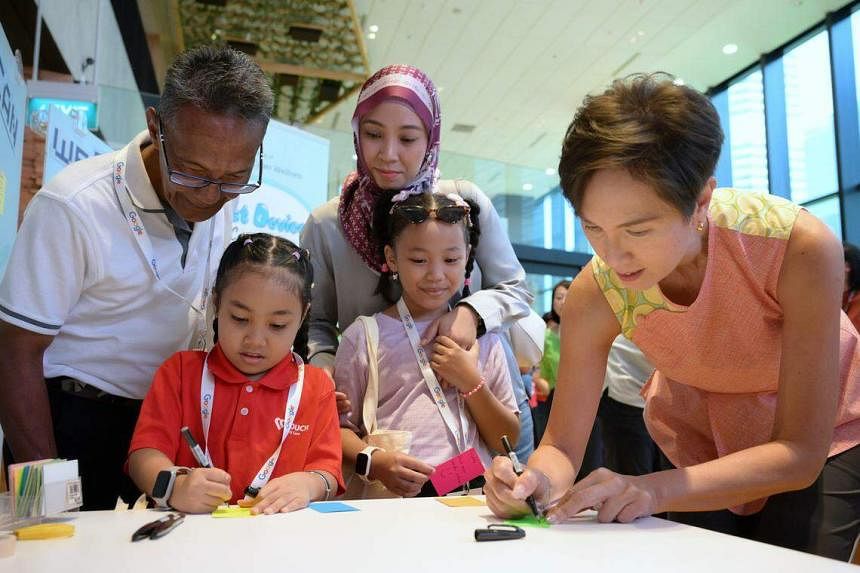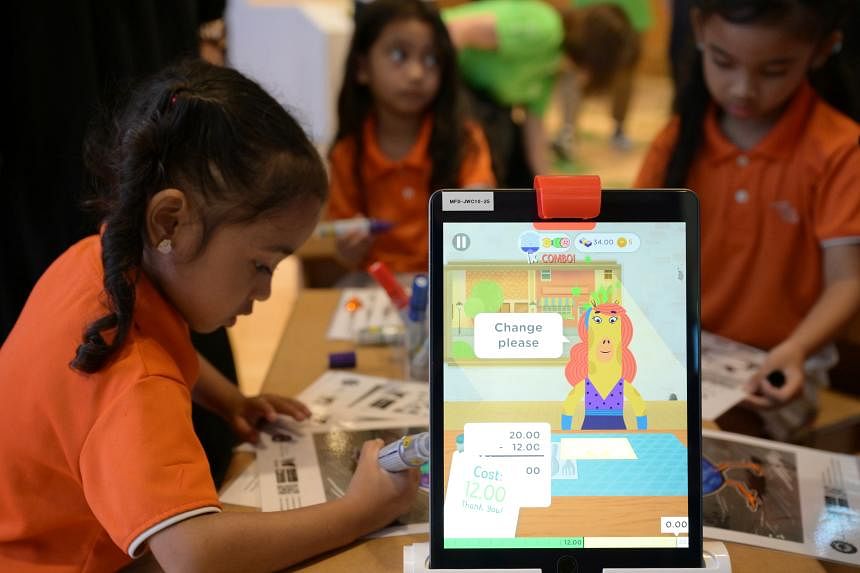SINGAPORE – When her nine-year-old daughter does her school homework, Ms Nuri Syafiqah Shumaswan will allow her to have a short period of screen time.
And even then, her daughter will be expected to stick strictly to rules outlined in their signed First Device Tech Agreement, which will work like a contract between parent and child.
The agreement, in the form of a document that can be printed, seeks to set out the boundaries and healthy online habits the child is to abide by before being given his or her first device.
It consists of rules that include the child asking the parent for permission before creating online accounts or downloading applications, and being careful of strangers online.
Ms Nuri Syafiqah, who works in the food and beverage industry, said she will be using the First Device Tech Agreement and all the other resources provided by the First Device Campaign (FDC) Singapore to safely introduce digital devices to her two daughters, aged six and nine.
Resources developed for parents include a series of animated videos on how to navigate the online world, a parents’ guidebook on how to engage their children and a magnetic planner board to set limits on device use.
Ms Nuri Syafiqah’s family was one of about 90 families at the campaign launch on March 23.
The campaign by Touch Community Services is in partnership with NTUC First Campus, and the launch was held at the Pasir Panjang office of Google Singapore, which is supporting the initiative.
It is in support of the Digital for Life movement, which is overseen by the Infocomm Media Development Authority.
The aim of FDC Singapore is to equip children above the age of five with life skills needed to safely navigate an increasingly online world.
Mr James Tan, the chief executive of Touch, said parents play an important role and need to be equipped with the know-how to build a safe digital environment at home.
He said: “Through the programme, we hope to see parents take on a more active role in their children’s digital lives as they nurture them to develop healthy online habits and become responsible cyber users.”
So far, Touch has reached out through schools and other channels to 3,000 families with the free FDC resources, with plans to share them with more than 10,000 families in the next two years.

Ms Nuri Syafiqah said she immediately asked to be signed up when she heard about the campaign from her child’s pre-school, as she was worried about exposing her daughters to the online world and needed help in preparing them.
“The Internet is a very big place, and there are a lot of dangers like inappropriate content and online predators. Even as adults, we also can get scammed,” she said.
“I want to make sure that my daughters are properly prepared before letting them have their own digital device. But before I can teach them, I must learn myself.”
She added that the resources will be very useful to her, especially the planner board, which she will be using to set a clear timetable of when her older daughter can get screen time.
Mrs Josephine Teo, Minister for Communications and Information and Second Minister for Home Affairs, who was at the campaign launch, said it was important to help protect children and teach them how to navigate the online world.
She said: “When they’re learning how to ride a bicycle, we make sure that we help them to put on trainer wheels to begin with. And if they reach the age when they are allowed to drive, we put them through driving school to get a driver’s licence.
“But we don’t have anything similar when it comes to helping our children navigate the online world.”
Mrs Teo added that while there are many opportunities for learning online, there are also many risks, and the campaign can help mitigate these.
“We can create an environment where our children can learn about the online world in a way that also keeps them relatively safe,” she said.
“Together, if we can all support parents better in their parenthood journey, particularly in dealing with the challenges that they will have in supporting their children in navigating the online domain, that’s something that is very meaningful.”

